Photo
Hi,
I really enjoyed reading your blog this week. It is evident you put a lot of thought into your post. Reading your environmental ethics it is clear we share similar points of view. The one ethic you mention that really stood out to me was " Humans should not be prioritized over other species". I find that humans believe themselves to be the smartest, or most important species on earth and believe the whole world should revolve around them. However, this shouldn't be the case, because humans are only one small part of the environment. Humans would not be able to exist successfully if it weren't for other species, and we should reflect this in our beliefs. I believe we are lucky to have somebody like you in a leadership role at provincial parks because you understand the importance of protecting our wilderness.
In your closing paragraph you mention that there are other drastic steps you can take to reduce your impact but suggest that these steps alone aren't enough. While I agree that on your own it's not enough I think that if everybody takes a few more steps towards change then the collective action will be enough to make a tangible difference. Instead of admitting these steps are not enough I think you should use your platform as an environmental interpreter to promote change as it relates to the environment.
Here's to hoping your car battery dies soon! (see you in a tesla?)
Cheers,
Lucas
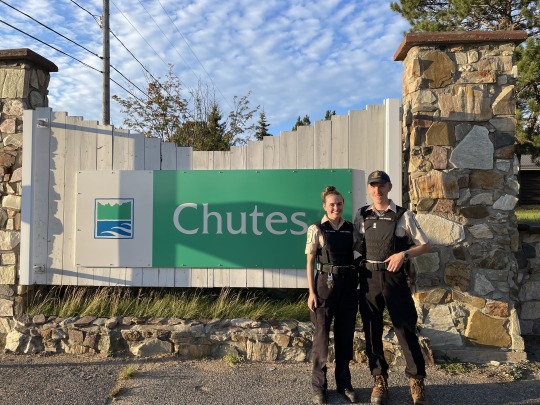
What is my personal ethic and how does it relate to the way I interpret nature? I have had a very hard time trying to understand what my own environmental ethics are. If the topic was bioethics including abortion, assisted suicide or organ donation, I would have written this post 5 days ago. I don’t know why environmental ethics are so much harder to articulate for me. To begin, I need to break the question down.
What exactly are ethics and what is the difference between ethics and morals? The only definition that makes a bit of sense to me is this;
Ethics are rules whereas morals are opinions
I know there is a lot more to this, but I am not a philosopher. Based on this definition, my environmental ethics include;
- Minimize my carbon footprint - Enforce environmental law to preserve natural landscapes - Large corporations should be held accountable for disproportionality degrading the environment - Humans should not be prioritized over other species
All of these are based on my love for the environment, which was instilled in me from a very young age. In my first post I told the story of how nature has influenced my life. My parents turned nature from a ‘space into a place’ through backcountry camping trips, hiking, blueberry picking in our backyard forest, biking, nordic skiing and cross country running (Beck et al., 2018). I practically grew up outdoors.
This type of childhood is becoming far less common. David Suzuki and Richard Louv discussed the negative effects that urbanization, technology, and fear are having on children as it pertains to connecting with nature. Richard Louv’s story about Juan Martinez from South Central LA really stood out for me. Juan was headed down a pathway that would likely result in gang life, but after getting in trouble at highschool he was forced to choose between getting kicked out or joining the Eco Club. His decision to join the Eco Club would soon become the biggest turning point in his life. Their field trip to Grand Teton National Park sparked something in him. He is now the head of the natural leaders initiative for the children and nature network and is the founder of a regreening project for his neighbourhood.
When I was in highschool, I was one of the first people to join the new environmental specialist high skills major (SHSM) program. This is similar to the eco club that Louv was talking about where we took field trips to nearby parks to plant trees and pick up garbage, started a composting program at the school, and came up with regreening ideas that were brought to the school board. In my first post I also mentioned the petition to protect Bennett Lake from road development which was brought to city council and voted in favour of. This petition was created by my friends and I who were all part of SHSM and all grew up with very similar childhoods. Coincidence? I think not.
This moral obligation to save the environment has led me to pursue a degree in environmental biology. I also applied at Ontario Parks in the summer after first year where I started as a nature interpreter/discovery guide and recently transitioned into a park warden. The discovery program incorporates many of the same ideas that we have discussed in class. My park’s programs incorporate art, science and technology. The programs are divided into topics, each with different activities that apply to different learning styles. Hands on activities include scavenger hunts, finding insects, and making art. Listening activities include bird call identification, asking them to close their eyes and tell me what they hear, and simply having conversations. Visual activities include demonstrations, the paint chip challenge where they have to find things in nature that match their paint chips, and looking at species identification placemats that we have from the arboretum.
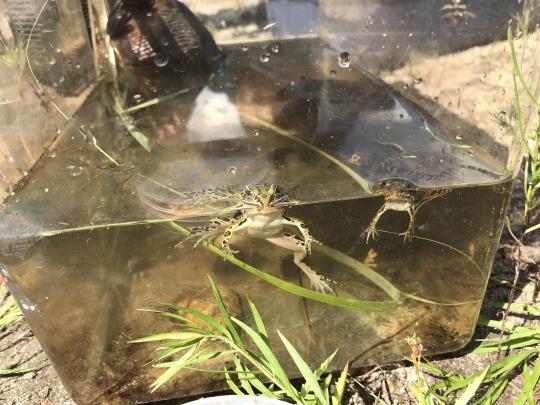
These are 2 frogs we caught and observed in the Amazing Amphibians program
The goal of this program is summarized by the pledge that every child has to take if they want to be a ‘true discovery ranger’; “Explore parks big and small. Observe plants and animals. Discover the wonders of nature”
This program provides children with a framework to start exploring nature and hopefully develop the same sense of love that I developed as a kid. My hope is that this will be a good motivator for the parents to explore with them and help foster this love.
As a park warden, I can take environmental ethics one step further by enforcing legislation such as the Provincial Parks and Conservation Reserves Act, 2006. There are a lot of laws that we as park wardens can enforce but I tend to focus on the ones that revolve around plants and animals. Did you know that it is illegal to hurt or even disturb plants and animals within a provincial park?
My personal life has also been influenced by my environmental ethics. I have become a vegetarian in the last 5 years in an attempt to reduce my carbon footprint. I also grow a lot of my own produce in the summers, carpool to work, use environmentally friendly cleaning products, and collect rain water to water my gardens.
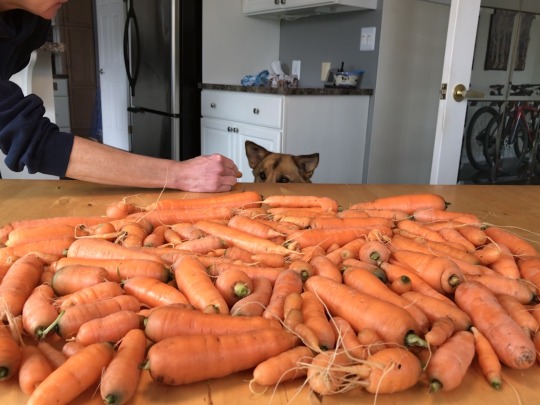
Once it is financially feasible and I own my own home, I would love to switch to solar power and buy an EV after my current car bites the dust.
There are more drastic steps I can be taking to reduce my impact even further, but these aren’t enough to make a difference on the global scale. We need the largest greenhouse gas emitters to become net 0, we need to place the environment before the economy for once, and we need to understand that earth is more than just habitat and resources for humans. I highly recommend watching this documentary by David Attenborough on Netflix because he touches on all of these ideas. This is the trailer for it.
All in all, I want to share my love for our natural world and hope that it inspires others to do their part in protecting it.
5 notes
·
View notes
Text
Hi Megan,
I enjoyed reading your post this week. I figured I'd try and answer the questions you asked!
1) I think there is a way to experience nature without hurting it by respecting your surroundings and treating it like you own it. The beauty of nature is that it is meant for us to explore. We are meant to climb on rocks, run through tall grass, and swim in the water. What nature is not meant for is us to abuse it, in the form of littering or purposely destroying it. The best analogy I can come up with is that we should treat it like we own it. Picture your house, full of all your precious belongings like tv's, computers, speakers, artwork, you name it, you don't treat your house like a museum and avoid everything. Instead you make yourself comfortable while still being cautious of not breaking anything around you. That's how we should treat nature, enjoy it but don't harm it.
2) I think it is hard to know if we are inspiring others to care for the environment. Do people really listen to what we say? I understand as nature interpreters we have a platform to preach sustainability of nature and being respectful of it. But does this message get across? I think so. I'm a firm believer in that if you hear something enough times you eventually grasp the topic. So, if we repeatedly talk about the fact that we must care for the environment I think the message is bound to spread.
Thank you for your post!
Lucas
Ethics
I want to begin by touching on the first thing we encountered throughout our content this week; The quote by Richard Louv… “Now, my tree-climbing days long behind me, I often think about the lasting value of those early, deliciously idle days. I have come to appreciate the long view afforded by those treetops. The woods were my Ritalin. Nature calmed me, focused me, and yet excited my senses.” (Last Child in the Woods)
This quote reminds me of my love for exploring forests. Specifically, I enjoy wandering “true forests”. By this, I mean they are those that have remained untouched by humans. They have no paths and have been allowed to develop on their own accord. Last week, I was in Uxbridge and had the gift of being able to explore the forest with my dog. We climbed on top of fallen trees and went wherever our hearts desired. Although there was some evidence of humans having been there (in the form of water bottles and man made huts), most of the forest appeared to be untouched. This raises the question, is exploring nature in this way damaging? Also, how do we experience and explore nature without destroying it ourselves? It became apparent to me throughout my exploration, that my being there was only to my benefit, not to the trees and other species trying to survive and were being hurt by my walking on them. There were many young trees, just starting out their lives that I had to ensure I did not step on. Did I accidently step on something I did not intend to? Was I damaging the delicate forest floor that many species rely on? I think these are all questions we need to consider as environmental interpreters. Although experiencing nature seems harmless at the surface, I believe we can be hurting it by doing things like this. So, my question to you all (because I am extremely unclear of the answer) is… How do we experience nature without hurting it unintentionally?
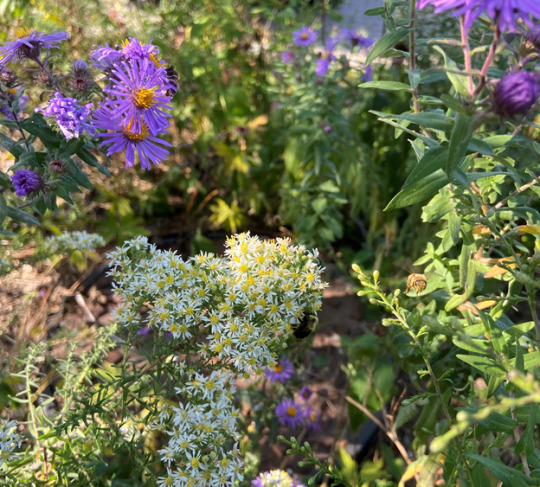
I also truly appreciate how Louv discusses that whatever our motivation is, we need to consider our responsibility to future generations. I agree with this point and it is one of the responsibilities I think I have as a nature interpreter. In terms of the story I have described above, I believe we owe it to our future generations to ensure forests are still there for them to experience. The forest is a place that many people find piece and inspiration to care for the environment. I think we need to take the necessary steps to preserve it the best we can, but I often wonder how we can do this as individuals. Unfortunately, the answer seems unclear and to have minimal influence. But, if we all took the initiative to do something and inspire others to take action, it will make a difference. These are similar questions to what is discussed by Jacob Rodenburg, which we encountered throughout our readings. But, I cannot help but wonder, how do we know if we are effectively inspiring others to care for the environment?
The beliefs I bring as a nature interpreter regarding ethics involve the responsibilities we have to inspire others to care for the well-being of the environment. As we have learned, there are so many things to worry about. These include climate change, habitat destruction, pollution in the oceans, etc. I believe it is crucial that we communicate this knowledge and ways to help as individuals.
Here is an interesting, and popular video, about how we can save our planet: https://www.youtube.com/watch?v=0Puv0Pss33M
If you are interested in learning about ways you can help as an individual, here is a useful link that will provide you with lots of information: https://butterfly-conservation.org/news-and-blog/10-easy-ways-you-can-help-our-environment
The approaches that seem to be the most suitable for me as an individual would be experiencing nature hands on and writing blogs and/or websites. These platforms allow me to describe the experience and what we can gain from it to help the environment. This description must be meaningful and it must spark an interest in the audience, hopefully inspiring them to care for preserving the environment. I think this written approach to interpretation best suits me because I can be a little shy and prefer to get my messages across in written words, rather than by verbally speaking them. I also feel like this offers the chance to provide all sorts of materials to the audience. For example, we have learned throughout the course that there are various types of learners. Different types of learners learn best by different means; some prefer to learn hands on, some prefer to visualize things, and others prefer to listen. Blogs and websites allow the opportunity to appeal to all of these types of learners. We can provide hyper links to direct the audience to different materials that may allow for more of a hands on approach, visualizations, and videos/audio recordings.
I think another important belief I have regarding the ethics of nature interpretation is our responsibility to provide material in the most accessible way possible. There are many different types of learners (as I have described above) and many people that have disabilities. These people have the right to be able to access the same material as others. If you are interested in this, check out this link that provides useful information on how we can adapt blogs and websites to be more accessible to everyone: https://www.ontario.ca/page/how-make-websites-accessible
To summarize, I believe the responsibilities I have as a nature interpreter are ensuring I am inspiring others to care for the environment, and that this information is accessible to all sorts of people.
References
WWF International. (2019, April 5). How to Save our Planet. Retrieved from https://www.youtube.com/watch?v=0Puv0Pss33M
Butterfly Conservation. nd. 10 easy ways you can help our environment. Retrieved from https://butterfly-conservation.org/news-and-blog/10-easy-ways-you-can-help-our-environment#:~:text=10%20easy%20ways%20you%20can%20help%20our%20environment,fun%20whether%20you%20are%20five%20or%20105.%20
Government of Ontario. (2021, January 1). How to make websites accessible. Retrieved from https://www.ontario.ca/page/how-make-websites-accessible
3 notes
·
View notes
Text
The Interpreter I Am
Before this course began I had given little thought about my role in nature, and what I wanted to do in the future. I knew I wanted to be involved in nature somehow, yet had no idea what that involvement may be. In one sense I was game for any adventure, and put little thought into how my role in nature came together. In the simplest of terms, I would consider myself a thrill seeker, using nature as a playground that serves as a spot for adventures and exploration. However, throughout this course I have learnt that there is more to nature than simply thrill seeking, and that nature has more to offer me, while I have more to offer it.
Earlier in the course when tasked with coming up with our ideal interpretive job I chose a backcountry guide, which involves taking groups on trips in remote wilderness locations. I still plan on being a backcountry guide, but my job description has been slightly tweaked. In one sense I believe that earlier in the semester I was quite naive in my reasoning for choosing this job. I was under the impression that all this job really required was some backcountry experience and willingness to explore, both attributes that I already had. I believe part of the reason I chose this job was because it is familiar and entirely in my comfort zone. As the semester has progressed and I have learnt more about the importance of nature interpretation I realize that this job is more complex than I initially believed it to be. Working as a backcountry guide requires open communication, patience, and an understanding of others learning styles. It is beneficial to be able to step out of your comfort zone and try something new, even though it may be initially quite daunting.
As I start my journey as a nature interpreter I have some personal guidelines and beliefs that I feel I must bring with me, in order to be as successful and provide the best interpretation possible. First and foremost, I believe that above all else you must have fun. Just because I am serving in an interpretive role does not mean that I can’t have fun and continue to be a thrill seeker. In my opinion, providing my audience with an exciting, fun interpretive experience is the best way I can ensure everybody enjoys themselves and learns as much as possible. The textbook states that, “many people attend interpretive programs or facilities because they find that acquiring knowledge is an enjoyable and enriching experience”, highlighting the fact that people want to have fun through interpretation (Beck et al., 2018). As an interpreter it is my goal to take it one step further, a two-fold promise to have fun by learning new information, and to have fun by taking part in exciting adventures. It is worth mentioning that just because you are having fun does not mean that you are reckless. I must be able to balance fun with being responsible, making sure that everybody is safe at all times.
Responsibility is a broad term, and besides being responsible for my audience's safety there is also the responsibility to care for nature. It is common knowledge that the planet is undergoing a climate crisis, with environmental degradation occurring at an alarming rate.
Here are some obscure eye opening statistics (Playground Equipment, 2021):
Every 2 days a forest the size of New York City is destroyed
Every minute we dump the equivalent of 1 garbage truck filled with plastic into the oceans
By 2050, 30 to 50% of all species will become extinct based on current extinction rates
These statistics are scary. It is my belief that we all have a duty and responsibility to protect our planet for years to come, allowing our grandkids and great grandkids to live a life similar to ours. A few ways to demonstrate responsibility for the planet are as simple as not littering, avoiding single-use plastics, and minimizing electricity use, among countless other things. Nature interpreters are given a platform to promote environmental responsibility, something that I plan on doing regularly. If everybody takes a few simple measures to protect our environment, the overall collective action will be great enough to ensure our planet stays healthy for generations to come.
I feel like a common theme we explored this semester is creating the ideal nature interpreter, one which everybody likes. Much of our content focused on developing ways to relate to your audience and make sure people enjoy their interpretive experience. It is worth mentioning that the ideal nature interpreter is subjective, and that everybody has a different view on what makes interpretation successful. I believe that individually we build an image of the ideal nature interpreter based on our own experiences and what types of interpretation have influenced us. For example, as a child I remember going to Lake Superior Provincial Park and taking part in many interactive games at the visitor center and learning a ton of interesting statistics. The statistics I learned that day have always stuck with me, and have taught me that sharing cool information is a great way to keep the audience entertained. So, as I venture into my own interpretation I will always remember to share cool facts and statistics, since I know this method of interpretation worked for me and should work for others. Besides the sharing of interesting information, I also plan on using comedy to my advantage. Cracking funny jokes has the ability to lighten the overall mood and relax the audience, creating a setting where everybody can laugh and learn at the same time. These two approaches to interpretation are suitable for me as I regularly act this way in everyday life and it does not require me to put on a fake persona for the audience. Everybody has a unique interpretive style, distinctively their own, and channelling this style creates the best version of nature interpreter one can be.
Before I sign off on my last blog post I just want to mention how much fun I had doing this. Over the course of the semester I read so many cool stories and learned a ton. Thank you!
Cheers,
Lucas
References:
Beck, L., Cable, T.T., & Knudson. D.M. (2018). Interpreting cultural and natural heritage for a better world. Sagamore-Venture.
Playground Equipment. (2021). How fast is the planet dying? 26 eye opening statistics. https://www.playgroundequipment.com/how-fast-is-the-planet-dying-26-eye-opening-statistics/
2 notes
·
View notes
Text
Hi,
I totally get where you're coming from in regards to how sweet forests are. Sometimes my friends and I choose to randomly spend a day in a forest exploring all the unique aspects of it. When I chose to attend the University of Guelph, one of the main reasons was because of the amount of nature so close to us, with so many parks and conservation areas nearby. My favourite scene in a forest has to be the setting where trees line a nearby creek. Anytime there is a creek in a forest I find it so cool, it's like a mini highway for aquatic species to travel throughout the forest.
One thing that you touched on that I would like to discuss in more detail is forests in the winter. It seems as though they get a bad reputation, or are considered not as pretty, but for me thats not the case. It is so cool to see trees covered with snow and large ice crystals hanging off branches. Plus in the winter it is easier to track wildlife since their paws leave tracks in the snow. Seeing all kinds of paw prints makes me feel more connected to nature, even though i know in the summer the same animals go through the forest, its just that we cannot see their tracks.
To answer your question, I went snorkelling at a corral reef in the Atlantic Ocean near Bahamas and I was amazed by the brightness of colours. The reefs themselves were pretty mellow but the fish surrounding them were tons of unique colours; yellow, red, purple. I was amazed by the rainbow before my eyes. I totally suggest going scuba diving or snorkelling to see for yourself!
Cheers,
Lucas
The Best Part of Nature
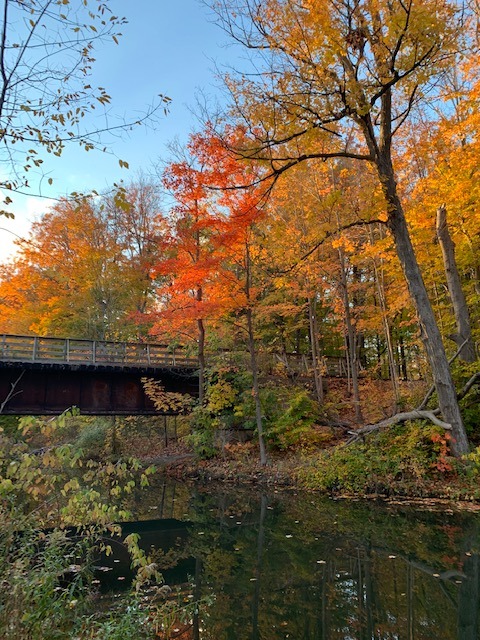
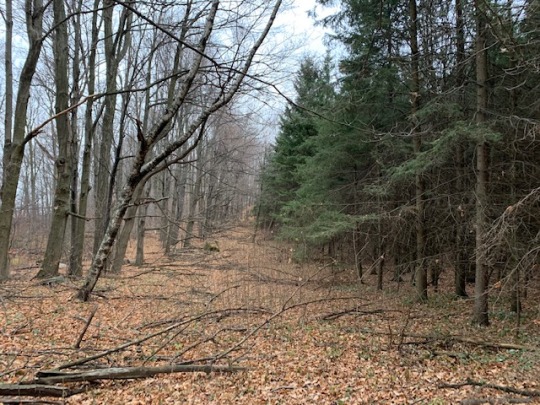
No one makes nature sound more interesting than David Attenborough. I recommend that you go watch one of his documentaries RIGHT AWAY and immerse yourself into the world of nature as narrated by the most soothing old British guy.
After watching all of his documentaries, you will fall in love with nature and its processes all over. I could never live up to the standards of Sir David Attenborough, but I can try my best and try to immerse you into the world of nature. There are so many different components of nature, all with their valuable and interesting topics, but with some standing out more than others.
To me, the most amazing thing I know about nature is the colours. How many colours can you count in a forest? Tons right? Nothing in the world can add up to the vibrant colours of the natural world around us. Trees, for example, are some of the most colourful components of our world. In North America, they are a vibrant green in the summer, but as soon as the weather gets colder, they change. They turn into vibrant shades of red, orange and yellow, and turn the green monochromatic landscape into a colourful palette as the leaves start to change.
The changing colours of the trees are the most mesmerizing part of the forests, as there is always something to look at inside. You never know what colour you are going to see.
Not to mention the creatures that live in these trees. Insects and birds of every colour can be seen flying around, some of them trying hard not to be seen. It’s hard to believe that so many colours exist and are being used by species every day to survive. Spending a day in the forest, it’s guaranteed you could find all the colours in the rainbow present, just by looking at the colour of the bugs you see crawling and flying around.
Even in the winter, when you think everything is dead, the forest continues to be a palette. The bark of the trees still reflects the incoming light, scattering it and making the forest light up. The snow held up in the branches of the trees adds shape and character, and provides contrast to the dark interior of the forest left by the cold winter. It may not look like a lot, but combined it is still a pretty picture.
I myself am biased towards forests, as they are all I know living inland in North America. I would be fascinated if someone who has spent time underwater could tell me about the colours they have seen, perhaps scuba diving or snorkeling? It’s funny that you don’t think of all the colours you’ve seen until you start to think about them!
But, if you haven’t, I am still curious to know that if you could take a snapshot of nature, with the prettiest colours, in your eyes, where would you take it?
5 notes
·
View notes
Text
Volcanic Lightning: Pretty Amazing
The most amazing thing I know about nature has to be volcanic lightning. Volcanic Lightning is a super rare phenomenon that occurs after a volcanic eruption. Oddly enough, the volcanic lightning is not produced from the atmosphere like regular lightning storms, rather the eruption itself produces an electrical discharge which leads to lightning. After a volcanic eruption, a giant, cloud-like structure called the volcanic plume rises into the atmosphere. This volcanic plume contains volcanic ash and a rougher material known as tephra. Within this plume, the ash and tephra are rapidly colliding and exploding, and have the ability to generate static electricity, which can result in lightning (Lipuma, 2016). This particular mechanism is called frictional charging and is the most common way that volcanic lightning happens. It is worth mentioning that just because collisions and explosions are occurring in the volcanic plume and creating electricity, it does not mean that volcanic lightning has to occur.
Personally, volcanic lightning is so amazing to me because of two factors, rarity and beauty. Volcano eruptions in general are pretty rare, with the general estimate that anywhere from 60 to 80 occur every year. Just being able to witness a volcano erupt is quite the feat. Volcanic lightning as a result of an eruption is even more rare, with approximately 200 reported sightings in the last 200 years. The earliest ever recording of this lightning was by an ancient Roman, Pliny The Younger, as he described the eruption of Mount Vesuvius in 79 A.D (Oregon State University, 2018). This eruption was better known for being one of the deadliest volcanoes in history, and the eruption which buried the city of Pompeii. Part of me feels jealousy towards the people who got to personally experience the lightning, but part of me also knows how scary it would be to be near an active volcano. It is human nature to want to experience the unexperienced, it seems as though everybody wants to be the first to see something unique, or the first to travel to a certain place. Look no further than the people who complete wicked treks up Mount Everest, just to be a select member of the prestigious summit club. Oftentimes, the rarity of an event or feat is what makes it so enticing to see or complete. In the case of volcanic lightning this rings true, seeing volcanic lightning firsthand, knowing that not many other people can say they have seen it surely makes it more surreal. However, rarity is only one aspect. Once you get over the initial thought of how rare it is, you are faced with a beautiful, crazy nature phenomenon. Lightning exploding out of volcanic clouds, sign me up!
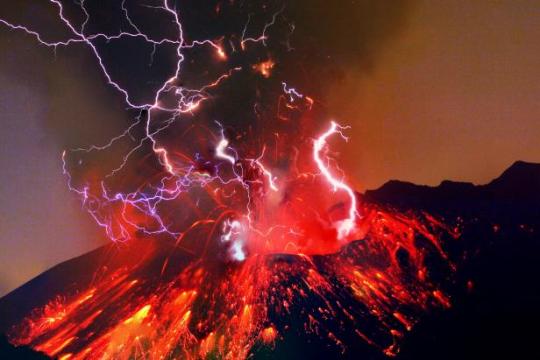
Check out this volcanic lightning picture. Talk about breathtaking!
My current understanding of volcanic lightning stems from pictures, videos, and reading stories about it. Maybe one day I’ll randomly stumble onto a volcanic lightning storm. For now, I am more than alright checking out images of it on my phone. Hopefully reading this post you learned something new. If you happened upon a volcanic lightning storm, how would you react?
Cheers,
Lucas
Lipuma, L. (2016, April 12). New studies uncover mysterious processes that generate volcanic lightning (plus video). Geo Space. https://blogs.agu.org/geospace/2016/04/12/new-studies-uncover-mysterious-processes-generate-volcanic-lightning/
Oregon State University. (2018). History of Volcanic Lightning. https://volcano.oregonstate.edu/history-volcanic-lightning
4 notes
·
View notes
Text
Hi,
I want to start off by saying I like your taste in music, The Eagles and Fleetwood Mac are all time. I find it funny you mention Peaceful Easy Feeling as your go-to song which reminds you of nature because I share a similar view, with Take It Easy by The Eagles being one of my favourites. It is quite impressive how music has the ability to tie into nature and enrich the experience we have. For example, your drive through the mountains of Georgia is probably more memorable because of the ties you made with music, now as you listen to Peaceful Easy Feeling you most likely instantly think of the nature you experienced. You mention how the song does not specifically reference nature but the sounds are simple and fit, which I can relate to. Sometimes, while in nature it is hard to listen to complex songs with lots going on since it takes away from the experience. While hiking I prefer either quiet music or music that has repetitive beats. My friends and I enjoy going for hikes together and our one rule is that music can be played in open fields and areas, but whenever we get to a forest setting with trails we turn off the music to experience the forest. There is nothing quite like the sound the trees, wind, and animals make in harmony together. But much like you, I had given little thought to music in nature before this week. Hopefully now as we continue to explore we can listen to our surroundings more and enrich ourselves in the art all around us.
Based on your 60's music taste I think you would enjoy California Dreamin' by The Mamas & The Papas, it has nature references too!
https://youtu.be/qhZULM69DIw
Happy listening,
Lucas
Where is nature in music? Where is music in nature?
We all have different preferences when it comes to music. While I do not particularly enjoy today’s pop and rap, I absolutely love 60s, 70s, and 80s music. I also like random songs here and there, ones that contain flowing instrumentals and messages. For example, I love the Eagles and Fleetwood Mac because their songs tell stories, rather than songs with derogatory messages (or no message at all, and what seems to be constant swearing). While I may have a granny-ish music taste, many of my friends enjoy rap and today’s pop for their own reasons. Even though all genres of music are different, every one of them shares the commonality of providing listeners with a type of feeling.
In this scientific review, the authors highlight the possibility that our ability to create, understand and communicate through music could be in our genes. They emphasize how other animal species such as birds and whales communicate through music and follow intervals similar or the same as our scales. This gives support to the theory that music capabilities could be hereditary. This article claims that wildlife do not solely make music vocally, but also use instrumentals though flapping their wings or pounding on objects. On the human level, the researchers suggest there is a deep need to create, perform and listen to music as this is present in every culture, and has been for thousands of years.
The idea of nature being in music is one that I have not given much thought to until starting this week’s unit. Wildlife DJ takes this quite literally as he takes sounds from animals to make music. I think this is a neat way of bringing an aspect of wildlife to people who cannot necessarily access or relate to it. I am a host for an organization called Exploring by the Seat of Your Pants, where the mission is very similar. This organization brings science and conservation to students through live streams all around the world with scientists and researchers. Last week, I hosted live events at the Toucan Rescue Ranch in Costa Rica, from home, for classrooms. This is something those young students and I would never have the opportunity to do without technology. I appreciate Wildlife DJ’s determination and creativity through making his music while providing an educational experience!
I have many songs which bring me to a natural landscape. As I work in a cemetery, I am always listening to music, and even have a playlist called “Cem Jams”. One song that I added to that playlist that brings me to a natural landscape every time is “Peaceful Easy Feeling” by the Eagles. Not that it has an abundance of nature-talk in it, but the simplicity of the acoustics and voices brings me to a calm state as if I were out in nature. The first time I heard this song was when I was six years-old driving to Florida with my family. I can picture the sunsetting behind the mountains as we were driving through Georgia. The sounds of nature are simple, peaceful and do not contain electric tones, which is one reason I believe songs like this bring me to nature.
I am excited to see what songs bring you to a natural landscape and to see how they are similar and different from my song!
5 notes
·
View notes
Text
Nature + Music = Good Vibes
Music is all around us. In my opinion, a world without music would be awful. The beauty of music is that it is a universal language, one does not have to speak the language of the vocals to be able to enjoy the song. Music has the ability to heighten situations, making them more fun or memorable. Imagine going to a party with friends and you arrive at the party and there is no music playing, chances are that night would go down as a weird experience. Without even knowing, music has become a major part of our daily lives, without it, there is something missing. Quite simply, music is all around us, whether in our headphones, on our radio, produced by the talented fellow whistling beside us, or heard from the chirping birds. Of particular interest is music in nature. I must admit, I had not thought too much about nature in music, but reflecting back, it is clear that it is all around us.
In nature, there is a plethora of music all around. I believe a common misconception is that people think of music only as a produced song or piece, not as natural melodies and hymns occurring in nature. Birds can chirp, trees can whistle, coyotes can howl, all of these sounds are a form of music, which have the ability to enrich the experience of being in nature. The paper “The Music of Nature and the Nature of Music” by Gray et al. (2001) argues that humans may have gotten the idea of music from nature, explaining that music has been around in nature for a long time, which may have given our ancient ancestors the kickstart to create their own form of music.
Besides music in nature, there is also nature in music. There are countless songs which feature nature references or sounds. Music is an art form, the same way nature is an art form. Combining these two art forms has the ability to create a diverse form of art that is unique and powerful. Artists have also used their music platform to promote environmental issues. One song that promotes environmental issues is “Big Yellow Taxi” by Counting Crows. With the line “they paved paradise and put up a parking lot” referring to the degradation of our environment.
In terms of music in nature interpretation, I believe that it has the ability to increase the overall experience the audience receives. Tilden states “Interpretation is an art, which combines many arts”, referring to the fact that it is normal and acceptable to have music as part of the interpretive experience. Music has the ability to trigger and create memories. Listening to a particular song, which aligns with the nature being experienced can have a major impact and lead to a lasting memory. For example, walking or boating along Lake Superior and hearing “ The Wreck of the Edmund Fitzgerald” by Gordon Lightfoot is sure to hit home, as you experience a song written about the particular area you are in. Effectively combining music into an interpretive experience is an effective tool for nature interpreters to use.
One song that sticks with me about nature is “Wheat Kings” by the Tragically Hip. To me, this song is the quintessential road trip at dusk song, as you drive through fields and flat terrain. Specifically, I am taken back to a memory of me and my friends driving through farmlands, singing about “the Paris of the Prairies”.
Here is all the music mentioned, take a listen:
Counting Crows - Big Yellow Taxi ft. Vanessa Carlton (Official Video)
Gordon Lightfoot - Wreck Of The Edmund Fitzgerald (Official Audio)
The Tragically Hip - Wheat Kings (Audio)
Happy listening,
Lucas
Beck, L., Cable, T.T., & Knudson. D.M. (2018). Interpreting cultural and natural heritage for a better world. Sagamore-Venture.
Gray, P., Krause, B., Atema, J., Payne, R., Krumhansl, C., & Baptisa, L. (2001). The Music of Nature and the Nature of Music. Science, 291(5501), 52-54.
0 notes
Text
Hi,
I enjoyed your unique perspective on history and how we are lucky that people cared enough to leave information here for us. Initially, I thought of preserving history and knowledge as maintaining artifacts, and sites, but your mention of medicine, math, science, and general education is eye opening. Without this knowledge acquired over generations, it would be quite impossible to even have infrastructure and a world where we are able to spend time in nature, know so much about nature, and for many of us, interpret it. The way I see it, advancements in knowledge and technology have paved the way, allowing us to live a more free life. Without the passing down of information, we as a society would lack fundamental practices we worry so little about. Specific examples I can think of are agricultural practices, and water treatment techniques. Each of these were developed years and years ago and are fundamental for sustainable life. Without agricultural we would have little food and without safe water we would likely not exist. So, instead of having to wake up every morning and brainstorm how to safely eat and drink to survive, we can thank our ancestors for passing along these techniques. This ties into being able to live with more freedom, since we do not have to worry about many processes and instead can focus on doing what we want to do, which for many of us in this class is nature related. Of course we must mention we are lucky to live in a developed country and not everybody experiences these advancements to the same extent as us.
The way I look at it is, without preservation of history and life practices there would be little time to enjoy nature, and what fun is there in that?
Lucas
The value in history
for some things we are lucky and they exist just because they once did, but so many things that we have that are ancient are there because generations of people saw something special in them. “To think, feel or act as though the past is done with, is equivalent to believing that a railway station through which our train has just passed, only existed for as long as our train was in it”
We owe our foundations of knowledge on the pasts failures and successes. The reason we don’t have to start all over ever day is due to the fact that we can learn from the past because someone cared to leave it for us. We have math, science, medicine and engineering but also culture, art and literature. We can see beauty in these things and value individual pieces as great examples of time period or excellence, but we also don’t have to figure everything out every generation. If we were to see the train station as useless after the train leaves then we would tear it down and need another station every time a train came, or worse we wouldn’t be able to take more trains. I happen to work at a historic site and there we balance caring for the presentation of history in a few ways. Our site no longer serves its original purpose, which was that it was a pool, but now is a museum. When it comes to historic sites in Canada they can be preserved in 3 ways: preservation, restoration and rehabilitation. With preservation we take care of something that is in good shape and keep it in working condition for its original purpose. Restoration is bringing something broken down back to its original condition using modern materials to replicate it as close as possible, and whenever possible using original elements. Rehabilitation though is when we preserve certain aspects but use the site for new purposes and possibly add new elements. This is all outlined in the Standards and Guidelines for the conservation of Historic Places in Canada https://www.historicplaces.ca/en/pages/standards-normes.aspx
These guidelines are to be followed when proposing that a site by recognized and there are many qualifications. It must meet some value measurements other than old in order to reach a protective status. “There is no peculiar merit in ancient things, but there is merit in integrity, and integrity entails the keeping together of the parts of any whole, and if these parts are scattered throughout time, then the maintenance of integrity entails a knowledge, a memory, of ancient things”
And with that I offer two images of the Banff Cave and Basin National Historic Site Pool. The birthplace of Canadas National Parks.
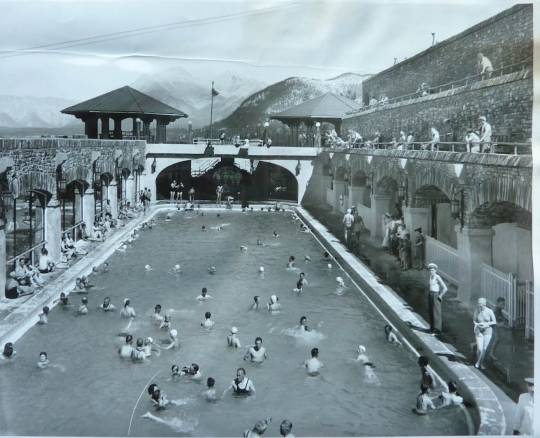
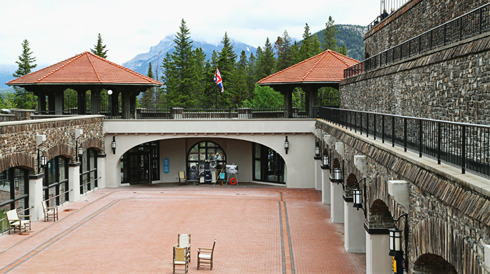
3 notes
·
View notes
Text
The Importance of History: Storytelling 101
Reading the quote by Edward Hyams, what jumps out at me is the underlying notion that history is a tool to show we care about the past, and are able to learn from it. Edward Hyams is desperately attempting to convey that the ability to remember events, stories, and artifacts is more important than the actual thing we are trying to remember. Hymans goes as far as pressuring the reader into sharing his point of view by questioning the integrity one has if they fail to remember. This quote serves as a stepping stone into the discussion of history in relation to nature, and how important a knowledge of past events is for effective nature interpretation.
When I think of nature interpretation, I think of the ability to weave a story into what we are experiencing firsthand. In the textbook, Mark Wallis states, “A good costumed interpreter (whether in first or third person) has to combine skills of a host, storyteller, an entertainer, an expert, a psychologist, a guardian (of the site and its artifacts), a tour guide, a stand-up comedian (when and if appropriate), a therapist, and a counsellor” (Beck et al., 2018). This quote highlights the importance of knowledge in successful interpretation, without a thorough history of the setting, one cannot effectively serve as any of the aforementioned roles. Most importantly, the ability to tell an exciting story, one which makes the audience feel as if they are actually present in it, is the key to successful interpretation. Yet, it is quite hard to tell a story when you have no actual knowledge of what happened. The idea of faking it and putting on a show for your audience only goes so far, eventually the audience will be able to see through the smokescreen and realize the interpretation is hollow. Relating this idea of storytelling back to the quote by Hyams, simply interpreting a setting based on what you are experiencing in the present does not capture the full picture, and is a naive way of viewing the natural world. Behind every picturesque setting interpreters bring their audience to, there is a backstory worth telling that will captivate the audience beyond what they are experiencing in the present.
One particular interpretive/cultural nature story that has stuck with me is the legend of the Sleeping Giant of Lake Superior, as told by the Ojibway people. Legend has it that an Ojibway Tribe was gifted Nanna Bijou (the Sleeping Giant) by the gods as a way to reward their peaceful way of life. Nanna Bijou, came with perks, as The Great Spirit told the tribe that Nanna Bijou contained a tunnel to a deposit of silver, enough to make them rich. However, if the tribe were to disclose the location to outsiders ( white people, colonizers), then the great Nanna Bijou would turn to stone. Unfortunately, a group of outsiders sent in a scout in disguise to find the silver tunnel, tricking the tribe and resulting in the demise of Nanna Bijou as was once known. This story makes the beautiful Sleeping Giant all the more breathtaking, and serves as a prime example that the knowledge of ancient things, through the maintenance of integrity as explained by Hyams, improves the quality of nature interpretation, captivating audiences like myself along the way.
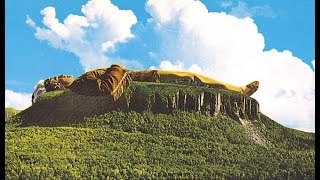
Miigwetch,
Lucas
Beck, L., Cable, T.T., & Knudson. D.M. (2018). Interpreting cultural and natural heritage for a better world. Sagamore-Venture.
3 notes
·
View notes
Video
Hey Brayden,
I thoroughly enjoyed your post this week, especially how you incorporated interesting scientific data into your discussion. I think it important that we stay positive during Covid-19. It is no secret the last few years have been a struggle for many, with positives at times feeling few and far between. Hence, your ability to outline the positives was definitely a morale booster. I'm particularly interested about the reduction in carbon emissions, and if this is sustainable for the future. It is no surprise that emissions went down in 2020 because of less travel, even if the drop was miniscule. Sadly, I think that as travel opens up, the emissions will increase to pre-pandemic level and the positive change may be eliminated.
I was trying to brainstorm a potential solution to air travel and its detrimental impact on our beautiful planet. One idea I think worth investigating is a travel tax. This travel tax would be an additional fee to be paid on top of a plane ticket, with all the money from this fee going towards environmental causes. Even if the tax was a small amount such as 3-5% of your ticket fare it would generate a large revenue, one which could be beneficial for our environment. Of course this is just a preliminary idea and the logistics behind this tax are quite complicated. What do you think of this idea?
Cheers,
Lucas
COVID-19 and the Importance of Nature (Free Write)
With thanksgiving coming to an end, I believe it is important to consistently be grateful for our privileges and what nature has to offer us. This year, I was most grateful to be at a family gathering that did not consist of only my internal family and I. Well I was surrounded by relatives for the first time in almost a year and a half, it made me think about what positive factors happened during the pandemic. The ongoing quarantine and isolations was some of the most stressful times of our lives. Nature has become the saving grace for so many people. Here are some that I identified a long with some articles that I find interesting-
1. Curbed carbon emissions during 2020
The government enforced quarantine made people isolate in order to help reduce COVID-19 cases. With the lack of travel, emissions were reduced greatly and for this first time in a long time, the ozone layer began to heal. Although the reduction was minuscule, I believe this sparked hope in many environmentalist.
https://www.nature.com/articles/s41557-020-0535-z
2. A greater appreciation for the outdoors
The University of Vermont conducted a study that asked respondents if they had increased participation in outdoor activities. With this information they concluded that wildlife watching was up %64, photography and art was up 54% and relaxing outdoors was up 58%. This time gave people the opportunity to truly appreciate nature and realize how they interpret it.
https://www.medicalnewstoday.com/articles/how-has-the-pandemic-influenced-our-relationship-with-nature
3. Less scepticism towards science
The intense research, endless trials, and speed of the vaccine advancements has exposed the possibilities of science. Beyond this, exploring and discovering what the environment provides us with has made people more open minded. Science is something I have always been passionate about and the recognition that it has gained is inspiring.
https://publichealth.jhu.edu/2020/trust-in-science-and-covid-19
These are just a few of what the pandemic has done to our environment. Although as we enter the ‘fourth wave’, many of these statistics have changed. I continue to be grateful for the advancements that we have made.
Beyond the scientific aspects of what the pandemic has caused, I am also grateful for my own experience with nature over this period. I have appreciated wildlife, hiking trails, and even my own backyard more than I ever have. My ability to interpret nature and share it with those around me has gone from a coping mechanism to a lifestyle.
This is one of my favourite moments from the spring of 2020. Everyone that was on the road experienced their own form of nature interpretation and an appreciation for wildlife (or at least I did!)
3 notes
·
View notes
Text
Nervousness In Nature
I vividly remember my first backcountry trip and all the nerves I was feeling before I embarked on a rugged 65 kilometre hike across rugged terrain. Having never been in a similar situation to this before I spent hours worrying about any possible negative outcomes and attempted to prepare for any possible scenario. On the top of my list of worries was the risk of running into a black bear. Although I am not super scared of black bears, they are not the first animal I would like to be greeted by at night alone in my tent. Hiking along the coast of Lake Superior in Northern Ontario, I knew there was a chance I would have an unwanted visitor at my campsite. To prepare for this potential encounter I prepared as well as possible by bringing a bear bag, rope to tie my bag to a tree, and bear spray. Luckily I never ran into a bear and had a trip with little worry. As I have become more experienced in nature I have begun to worry less and less, as I realize that I have the experience and confidence to overcome tense situations.
I know for a fact there are many people who have been in a similar position to me and have been nervous to go on a backcountry trip. Their nerves may be entirely different from mine, whether it is being worried about adverse weather, a low food supply, or limited access to treatable water. As a future backcountry guide and nature interpreter I realize that my role at times will entail calming peoples nerves down and ensuring that the trip goes as smoothly as possible. Hence, I believe it is super important that I remain calm and composed, no matter what is happening out in the natural world. The second I start to worry and panic, my group will follow suit, if they have not started already. I think there is a fine line as a nature interpreter and guide when it comes to leading a group of people. In the textbook, Tilden states, “we cannot forget that people are with us mainly for seeking enjoyment, not instruction” (Beck et al. 2018). This quote resonates with being a guide and dealing with nervous party members. Even if the situation is worrisome and people begin to panic, it is important not to boss people already, instead I believe it is better to suggest possible solutions. The minute I start to bark orders at people, the minute people on the trip stop having fun, no matter how many bears may be chasing after us.
I think the idea of being nervous in nature has not been touched on much in this class, and in general. It is worth mentioning that everybody at one point or another has felt nervous about being in nature. Instead of living in fear, I believe it is best to use this past nervousness and learn from it to better prepare for the next situation that will bring forth nerves. As a future backcountry guide I know now that I must be as calm as possible at all times.
Do you guys have any similar stories about being nervous before or during a backcountry trip?
Keep calm and adventure on!
Lucas
Beck, L., Cable, T.T., & Knudson. D.M. (2018). Interpreting cultural and natural heritage for a better world. Sagamore-Venture.
2 notes
·
View notes
Text
Nature Is Art, Behold The Beauty
When I think of nature in the context of art my mind instantly thinks about picturesque scenery like waterfalls, mountains, and sublime bodies of water. I think a major reason people are so eager to spend time outdoors in nature is because it provides us with first-hand detail of incredible living art. In a sense, without the beauty of nature, our role as nature interpreters would be unnecessary.
Personally, I interpret the “gift of beauty” nature provides us by dedicating time to spend in nature by myself at ease. Much of my experience with the art in nature is through my designated adventures such as hiking or canoeing, designed to see as many beautiful landscapes as possible. I know I am not alone in this thinking, with people being drawn to scenic regions. One example can be Banff and Lake Louise, regions which are so spectacular and prone to thousands of tourists every year, all trying to take in the beauty. If I was planning a trip out to the mountains I would be sure to create an itinerary around seeing the major scenic settings.
One way I engage in interpreting nature through art is by photography. Unfortunately I am not very artistically inclined so painting or drawing scenery is out of the question. All of these art forms give you the ability to take what you want from the environment. When you are in a nature setting, there are multitudes of different ways to capture the setting as an art form. The cool thing about capturing a setting is that everybody captures it differently. Two people can go to the same lake and take pictures of it and the end result will show two unique pieces of art. The way the setting is captured can provide so much detail into how somebody interprets nature. An artist may see a mountain with sun beaming down on it and emphasize this contrast of mountain and sun by exaggerating the colours to make the art pop out. Everybody is unique.
I have included some photographs I’ve taken. Looking at my photographs it is evident I have my own style and choose to capture the beauty in my own unique way.
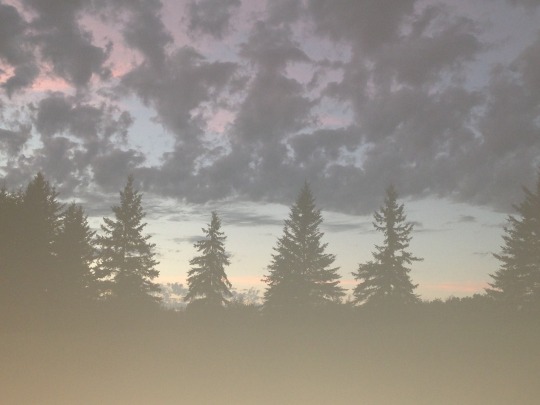
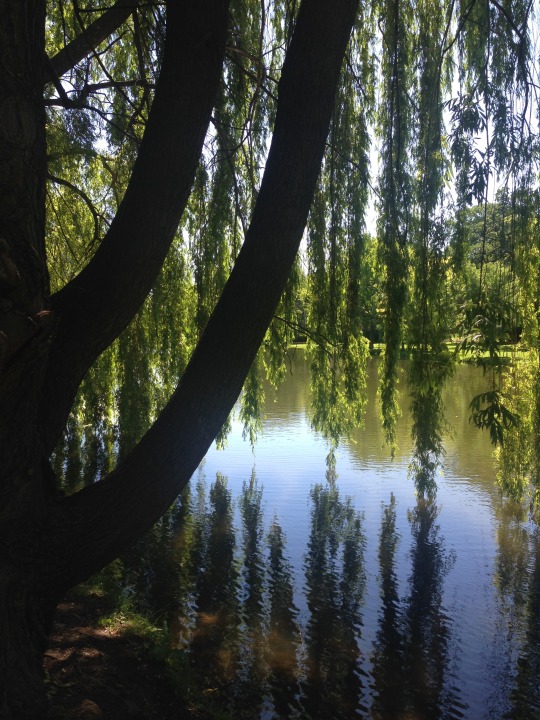
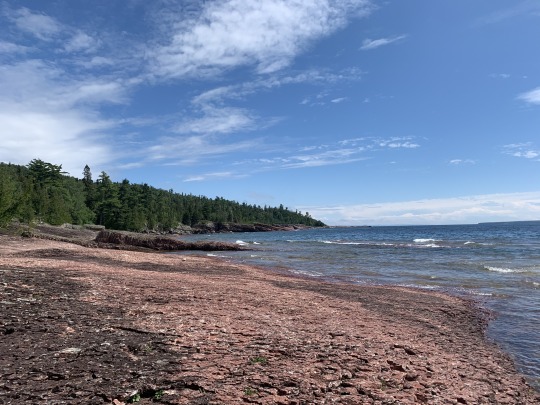
As a nature interpreter serving as a guide for others I think it is important to promote self-exploration and discovery. While leading an interpretive session through nature I think the job of an interpreter is to force people to find their own unique beauty, everybody's definition of beauty is different, one person may be drawn to trees while others may be drawn to rocks. The textbook states, “Interpretation should instil in people the ability, and the desire, to sense beauty in their surroundings- to provide spiritual uplift and to encourage resource preservation” (Beck et al., 2018). This quote aligns with my own personal beliefs that people should find their own beauty and that nature interpreters are there to guide an adventure, not to control it. As an interpreter it is imperative that you do not allow your own personal views to cloud the way you convey nature to others.
I am curious, how do you interpret nature through art? With photography like me? If so please share some cool pictures!
Lucas
Beck, L., Cable, T.T., & Knudson. D.M. (2018). Interpreting cultural and natural heritage for a better world. Sagamore-Venture.
1 note
·
View note
Text
Hi,
I enjoyed reading your blog post and feel like we share similar points of view on art in nature. I found it quite interesting how you describe that you are able to create art through photography of nature. I had never quite thought of this perspective, instead I just assumed the art was the scenery itself. It turns out though that being able to make nature come to life on a medium, whether it be photos, drawing, painting is a skill relevant to nature interpretation. The awesome part about creating your own art through nature is the ability for you to personally craft the artwork to reveal your beliefs on nature. For example, if you were to draw a picture of the red sun you photographed you can emphasize the red sun compared to the rest of the sky to really demonstrate how important the moment was to you.
One point you made that is accurate yet quite upsetting is how climate change is impacting nature. Although in the case of the red sun climate change made stuff more serene it also has the ability to disrupt nature. I believe it is imperative we continue to fight climate change as nature enthusiasts. In the future, if climate change continues there may not be beautiful scenery for us to interpret and our job as nature interpreters would be irrelevant.
Answering your question, one way to inspire people to use art to prevent climate change is by using photography to signify changes over time. To me, if everyday for 5 years somebody took a picture of a particular scene in nature and combined them to build a time lapse I think we would see notable change. This notable change could serve as a way to inspire others to better protect our environment.
Great post!
Lucas
Interpreting Nature Through Art
As we have learned, a huge part of interpretation is from direct experiences (Beck 1986 cited in Beck, L., Cable, T.T., & Knudson. D.M., 2018). I interpret the gift of beauty by directly experiencing it, and with this sometimes comes the creation of art. For example, one morning when I was awake quite early, I went for a drive and got to experience the whole sunrise. What was even more interesting about this was that it was one of the days we were able to witness a red sun. At first it amazed me, but then I realized it wasn’t normal and was likely due to the increase in forest fires which is one of the consequences of climate change. Moments like these I love to capture with a photograph. This way I can share it with others in a way that they get to experience part of it. I think this is a far more effective way of inspiring people to experience and care about the environment and how climate change influences it, than by simply explaining it.

Here is a photo of the red sun I saw. See way better than me simply telling you I saw a red sun one morning.
A way to interpret nature through art, for me, is through visual illustrations, pictures, and sometimes drawings of nature. Bill and Tiden state that reporting the beauty of a scene may take away the opportunity for inspiration. One of my goals as an interpreter is to inspire people, so I think finding a way besides writing and explaining nature’s beauty may be an effective way to do this. As I mentioned this could be done through art by presenting a picture or illustration to describe the scene rather than through written words. This allows for the audience to come up with their own inspiration from the visuals.
A major part of nature interpretation is revealing meaning. When doing all of these things I have discussed it is important to not lose sight of the meaning. That is, we must communicate to the audience in a way that understands their background, reveals the meaning of the interpretation, tells a story, and develops a whole understanding of the information (Beck, L., Cable, T.T., & Knudson. D.M., 2018). I think a key to doing this involves the visuals presented with the information. Visuals will allow the audience to keep engaged and promote understanding of the information. In the situation I mentioned earlier with the sunrise and red sun being a consequence of climate change, I think it is important to emphasize that this has a deeper meaning; which is, we need to care about our environment and take steps to take care of it. I am wondering, how do you think we can inspire people to care about taking care of our environment and reduce emissions through art?
Reference:
Beck, L., Cable, T.T., & Knudson. D.M. (2018). Interpreting cultural and natural heritage for a better world. Sagamore-Venture.
2 notes
·
View notes
Text
Hi,
Reading your blog post it is evident you are able to understand privilege and can successfully acknowledge the fact that you are privileged to be in the position that you are in. Being open about your privilege will allow you to not let it cloud your judgement as you become a nature interpreter.
I fully agree with you that privilege has allowed us greater opportunities to experience nature, and in turn has put us on a specific pathway to serve as interpreters. In order to become an interpreter you need a significant amount of knowledge regarding nature, most likely acquired through past experiences. Having past experiences in nature is a privilege since experiencing nature tends to require specific traits exclusive to privileged people. For example, to go on a backcountry nature trip you would require money for gear and food, and a good job that provides you with time off. Each of these requirements represent a level of privilege that not everybody has. Many people would love to go on nature trips yet do not have the proper funds or experience to let them partake in a nature trip.
In my opinion, being able to recognize your privilege and unpack your invisible backpack will strengthen your interpretational skills. As you pursue interpretation, you will have to interact and work alongside people who have very different backgrounds, some underprivileged, and your ability to understand privilege will help you better relate to your audience.
Great post!
Role of Privilege in Nature Interpretation

While reading this post, consider that I am using “privilege” here to refer to opportunities and experiences that an individual is given throughout their life that provides them an advantage. These opportunities and experiences are given. By this, I mean they are obtained not through the actions of the individual, but by those out of their direct control.
I am embarrassed to say that before this course I had not considered the role privilege plays in nature interpretation. Privilege provides individuals with opportunities that not everyone may get, and these opportunities can be done at a lower risk. I will dive further into what I mean by this with shortly. In terms of nature interpretation, privilege provides more access to environmental interpretation opportunities.
Speaking and writing in English is one privilege. Large journals are often written in English, so being able to write in English allows for a better chance at becoming recognized in literature. A similar circumstance might be said about communication for environmental interpretation. Since English is a popular language, communicating in English may provide the most opportunities for reaching a large audience. For example, hosting an English podcast would likely reach and appeal to more people than a podcast in a language that is not as popular. Considering this, it makes me wish there were extra measures (if there are not already) to effectively translate material. This would allow those that do not speak English more of an equal opportunity to access information. I am wondering, does anyone have an idea of how to go about this? Or if this is already being done?
Back to the point I touched on earlier (about how privilege comes with more opportunities and less risk). Here I meant that those with more privilege have more opportunities to experience and learn about nature. This could be because of their available finances, having two parents that provide them with opportunities, etc. These things would allow them to be able to do activities that lead to an inspiration for caring about nature and the environment. Although risk can be found anywhere, I state that there is less risk for those with privilege because their life situations may provide them with less opportunities to be exposed to danger. For example, people with more financial security are able to participate in things like overnight hiking trips, go to a cottage, or sign up for a paid podcast without having to worry about the possibility of a financial loss that will negatively influence them. Does anyone else have any other ideas of how risk might be lower for those with privilege?
By understanding the role of privilege in nature interpretation, I have begun to unpack my invisible backpack (think about the characteristics and opportunities I have been given that others might not have as much access to). For example, I am learning about nature and interpretation because of my mom offering me the chance to go to university. This is allowing me to learn about how to effectively interpret nature which may give me a step up compared to others if I decide to make my own interpretation website, social media, or another blog. Recognizing the role of privilege and understanding the privilege we have as individuals is crucial to offer everyone as equal of an opportunity as we can to understand and learn about nature, which I think is a important responsibility of an interpreter.
Image credits: https://thevarsity.ca/2015/01/11/when-is-it-necessary-to-for-us-to-check-our-privilege/
4 notes
·
View notes
Text
A Privilege To Be In Nature
In my opinion, privilege is being at an advantage over others in life thanks to having beneficial traits outside of anybody's control. These traits can include race, religion, financial security, place of birth, and more. All of these traits allow for certain individuals to receive better opportunities than others who are not as privileged. Specific opportunities/advantages that privileged people may have over others include; ability to attend school and become highly educated, having an easier time to find a job, never having to worry about being hungry, and having a safe place to live. Many people have a hard time acknowledging their privilege and fail to recognize they are lucky. The concept of carrying an “invisible backpack” full of privilege is quite interesting, suggesting that some people fail to realize their successes in life can be attributed to having traits which put you at an advantage over others. Unpacking my backpack, I am a white, english speaking male coming from a financially stable family in a safe, successful country. All of these traits within my backpack demonstrate my privilege. This privilege has allowed me to attend university and be relatively unscathed financially, to play various sports, be given the opportunity to travel, and has let me dedicate more time to be in nature.
Of the various things my privilege has allowed me to do, giving me the opportunity to spend more time in nature is very relatable to this class and nature interpretation. Although nature is all around us and for the average person, decently accessible, not all people have equal access to exploring the natural world. Activities that I love to do such as overnight hiking and canoe trips are not practical for all people. Behind a backcountry trip there are various things to consider such as; cost of all the gear to complete the trip, ability to take time off work to explore, and having past experience doing similar things. One simple trip is more complex than what it appears like on paper and privilege is a major mechanism allowing people to complete these trips. Hypothetically, if I grew up with very little money, chances are I would not be able to ever experience a nature trip and would most likely not be inclined to start doing them. A lack of experience coupled with a lack of money surely results in not being able to explore the natural world.
At this time, I am in a position to be a nature interpreter as a result of my privilege. It is important to me that as I continue my journey towards interpreting nature I take into account other people's backgrounds compared to my own. Not all people have been lucky enough to immerse themselves in nature like I have and therefore will not have the same views as me on nature. As I share my experiences with others I plan to listen to others and base my interpreting around my audience.
1 note
·
View note
Photo
Hey Lauryn,
I agree with you regarding never having been aware of environmental interpreters before taking this class. I knew guides existed to share their knowledge but I never really thought too deeply about them. Even after finally hearing about interpretation via this class I never considered remote, recorded information as a form of interpretation, I just assumed that interpretation had to be face to face. Throughout your post you touch on the tiny details that make improve interpretation. Of all the details you touch on I find the "Y" of Brochu & Merriman's POETRY guideline to be the most important. In order to be a good interpreter you definitely need to be interested in the topic, interest will lead to passion and passion is what builds solid interpretation. If I were an audience member and somebody was interpreting nature with little passion and interest I would most likely lose interest myself and gain little from the presentation. However, I do think there is a fine line between interest and overkill, if the interpreter is "too passionate" it might appear fake and that would not go over well with the audience.
I'm curious as to what you are interested in and what nature would you interpret for your dream job.

Prior to this course, I had never heard of an “environmental interpreter”, but in the last two weeks, I have been learning about their significant role in many settings! I was reflecting on places I have been to where I have come across interpreters, and one place would be the Roman Baths in Somerset, England, where I listened to an audio tour by dialing the numbers at the various stops. I had never considered that with this type of tool, such careful planning goes into the story telling to appeal to the tourists.
An environmental interpreter requires specific skills in their practice. They need to know how much to share about a topic, and the key details that are of interest and relevance to the listener. In my upcoming projects, I will be abiding by various formulas to connect with my audience through podcasts. Mill’s formula is a great place to start, to create podcasts that appeal to the imagination and the reason, to give life to cold facts, make stories to breathe life into inanimate objects, deal with principles rather than isolated information and give biographies rather than classifications (Beck et. al, 2018).
Freeman Tilden’s six “principles of interpretation” (1975) is also resourceful, and builds on Mills’ formula:
1. Any interpretation that does not relate what is being shown or described to something within the personality or experience of the visitor will not resonate
2. Information alone is not interpretation, however, all interpretation includes information
3. Interpretation is an art, therefore is teachable to some degree
4. The chief aim of interpretation is provocation
5. Interpretation should aim to present a whole rather than a part and must address itself to the whole person, rather than any phase
6. Interpretation addressed to children should not be a dilution of the presentation to adults but should follow a different approach. To be at its best it will require a separate program. (Beck et. al, 2018).
Additionally, Brochu & Merriman’s (2008) POETRY approach is another great tool to follow to ensure an environmental interpretation podcast will be successful (Beck et. al, 2018). P, for “purposeful”, is important because I want my topic to be of interest to my listeners, but also of significance, which in turn should motivate more people to listen. O, for “organized”, is also important for a successful project. The information in the podcast must follow a certain order to make listening enjoyable and easy for the audience. If I am jumping from topic-to-topic, the podcast will be difficult to follow and disorganized. E, for “enjoyable”, goes in-hand with purposeful and organized. An enjoyable podcast should not be dense with facts. For example, while the topic of climate change is purposeful, and can be explained in an organized way, if I go on a tangent about the science behind oceanic currents and the Coriolis effect, I may lose some of my audience to boredom. It needs to be a mixture of scientific facts and symbolism to reach a larger scope of viewers. T, for “thematic”, also correlates with enjoyment. It is important to stick to a theme as not to confuse the listeners, and to keep them engaged. If I title my podcast “wildlife in a concrete jungle” and begin my podcast about the different wildlife in the Toronto area, I do not want to conclude my podcast with results of the recent election (which is another point, that talk of religion and politics should be avoided). R, for “relevance” is key to being a successful interpreter. They must remember why the audience tuned in and what they are there to learn. While analogies can be made to make the understanding easier, when teaching a historical lesson, the facts should remain present and relate to the topic. If my audience tunes out and asks themselves “So what? What was the purpose of listening to this?”, then I failed. Lastly, Y which stands for “you” (as the interpreter) is important to consider when creating a podcast (Beck et. al, 2018). The only way to display my passion and enthusiasm about a topic is to be curious and interested in what I am teaching!
I am very excited to start practicing and building upon my skills as an environmental interpreter. I have always loved nature and wildlife, and want others to perceive it the way I do, but this is only possible through technique and effective communication. I hope that soon, I can help more youth and adults perceive nature in a positive way, and highlight aspects of nature that often goes unnoticed! I would love to know, what other skills do you think an environmental interpreter needs to successfully engage their audience and how do they obtain these skills?
Reference
Beck, L., Cable, T.T., & Knudson. D.M. (2018). Interpreting cultural and natural heritage for a better world. Sagamore-Venture.
1 note
·
View note
Text
Ideal Environmental Interpreter Role
My ideal role as an environmental interpreter is a backcountry guide working with Parks Canada. Parks Canada oversees all the national parks, national historic sites, and national conservation areas throughout the country. There are 38 different national parks scattered throughout the province and territories, ranging from the extreme south of Canada (Point Pelee National Park) to the extreme north of Canada (Quttinirpaaq National Park). Working as a backcountry guide would allow me to spend more time outdoors while having the ability to share my passion for adventure with others.
My specific park of interest is Gros Morne National Park, located in Newfoundland. Gros Morne is approximately 700km away from St John’s, the capital of Newfoundland and Labrador. Most can recognize Gros Morne through it’s picturesque Western Brook Pond, an impressive fjord renowned for its crystal clear water and breathtaking cliffs that line it.
As a backcountry guide at Gros Morne my primary role would include leading guided interpretive tours through the various hiking trails at the park. Gros Morne has approximately 20 day use hiking trails ranging from 200m to 20km in length. Besides the day use trails, Gros Morne has two crown jewel hiking trails within the park, the Long Range Traverse and the Northern Traverse, each multi-day strenuous hikes which take you through the interior of the park. These trails are designed for veteran hikers with years of backcountry navigation experience. As a backcountry guide on these trips I would be responsible for assisting in navigation, planning route details, and providing trivial information throughout the trip. Talk about exciting!
In order to be a successful backcountry guide at Gros Morne I would need to have a diverse skill set, including; strong interpersonal skills, an affinity to memorize details, enthusiasm for the outdoors, and a calm demeanour. As a backcountry guide I will work with a variety of different groups and organizations and will have to adapt my interpretive tours to individually suit each group, making it important I have strong interpersonal skills like patience, collaboration, and leadership. While acting as an interpretive guide it is crucial to display enthusiasm for what you are doing, nobody wants to be guided by somebody who clearly does not want to be giving the tour. It is also relevant that backcountry guides have a good memory in order to remember routes, trip details, and trivial information which can create an informative, successful interpretive tour. However, as a backcountry guide there will be times when the ability to memorize route details can only go so far whether there is adverse weather or obstruction to a particular route. In these situations it is critical that the interpreter displays a calm demeanour and handles the situation with confidence. Having the ability to remain calm in an adverse situation while with a group of people ensures that the group stays as grounded as possible, if as an interpreter I began to freak out when faced with a challenging situation the group would instantly begin to worry as well.
It is my hope that I can continue honing my craft as a backcountry nature expert and with the help of this class and other experiences I can become a successful backcountry guide at Gros Morne National Park.
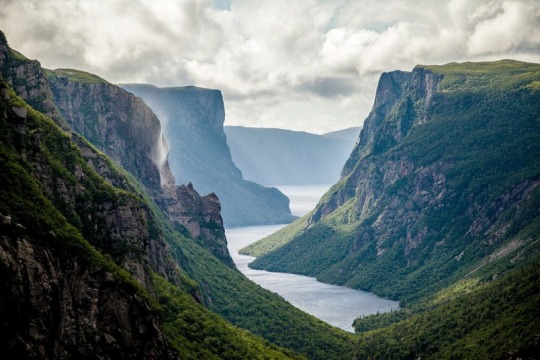
5 notes
·
View notes